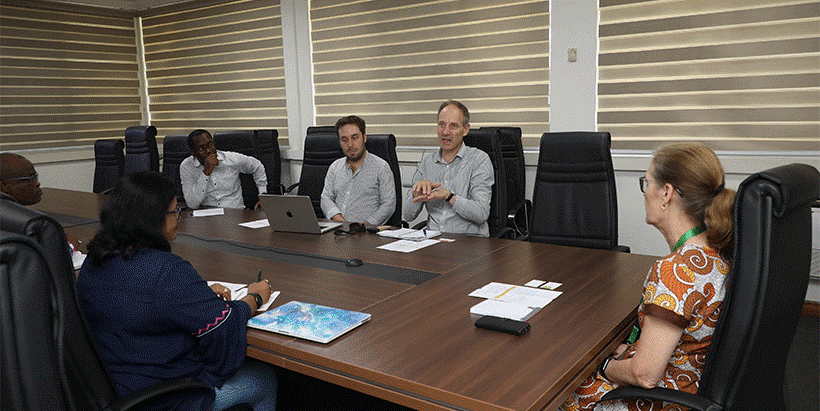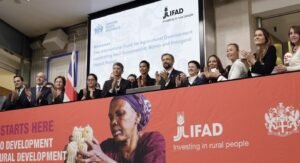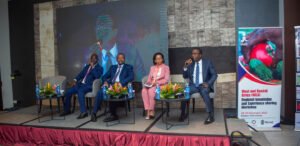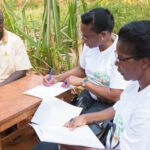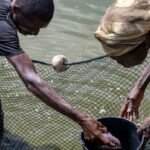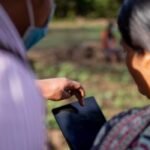IITA team with the delegation from the World Bank Analysis of Drivers of Natural Tree Cover Loss in Nigeria. Photo Credit: IITA
By Esther Moses and Anita Akinyomade, IITA, November 27, 2023, Developing countries, including Nigeria, are facing huge deforestation, destroying the biodiversity potential of tropical regions and impeding progress in achieving sustainable livelihood.
On 3 November, a delegation from the World Bank Analysis of Drivers of Natural Tree Cover Loss in Nigeria visited IITA–CGIAR, Ibadan, to address these deforestation challenges and seek holistic solutions for a sustainable future.
Giving the opening remarks, IITA Deputy Director General for Corporate Services (DDG-CS) Hilde Koper-Limbourg introduced the delegates to the Institute’s activities, focusing on IITA Forest activities. She highlighted IITA’s ongoing afforestation efforts within and outside the campus, including a successful collaboration with the Nigerian Breweries on the Olokemeji Reforestation project, which is being implemented in Ogun State.
Team Lead Matthew Owen shared a success story on a unique model using population and knowledge of demand energy, which produced insightful results for the World Bank. Encouraged by the success, the model would be replicated in Nigeria to reduce tree cover loss.
The discussion shifted to drivers of tree cover loss in Nigeria, emphasizing the role of agriculture and wood fields. Whether it is the cultivation of cereals, arable crops, legumes, or tree crops, all contribute significantly to deforestation.
Therefore, “there is a need to put in place policy measures with direct interventions to control degradation and increase food productivity while mitigating environmental impact,” Owen stated.
IITA Molecular Geneticist Ranjana Bhattacharjee highlighted the alarming trends concerning the depletion of forests in Africa, citing Ghana as a case study. She further underscored that Nigeria is on the brink of losing its forests, identifying climate change and population as the key contributors to this challenge.
Addressing the challenge of deforestation, Bhattacharjee emphasized the critical need for sustainable intensification interventions. These involve three pillars to achieving integrated soil fertility management, sustainable land management, and climate change adaptation and mitigation measures.
Bhattacharjee also advocated incorporating agroforestry practices, which will boost productivity without aggravating deforestation or harming biodiversity.
IITA GIS Specialist Mr Tunrayo Alabi sharing a baseline study on the application of GIS to control Banana Bunchy Top Virus (BBTV).
IITA GIS Specialist Mr Tunrayo Alabi sharing a baseline study on the application of GIS to control Banana Bunchy Top Virus (BBTV).
IITA Geographic Information System (GIS) Support Services Manager Tunrayo Alabi shared a baseline study on the application of GIS to control Banana Bunchy Top Virus (BBTV). He stressed the crucial benefits of adopting new technologies in agriculture to address deforestation, identifying that agriculture is yet to reach its peak.
This article was originally published on the IITA website.

